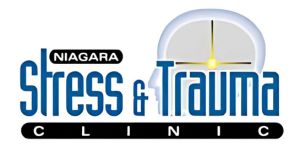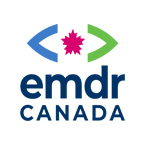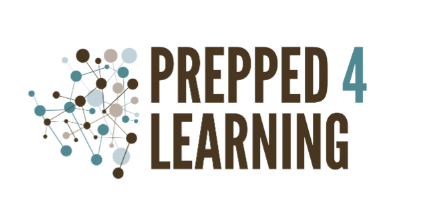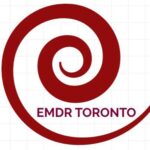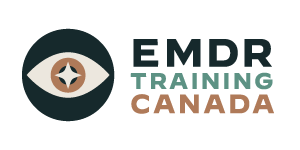
Lunch & Learn Webinars
Available exclusively for EMDR Canada Members!
January 30, 2026 | 12 – 1 pm MST
EMDR & Couples – An Introduction
Kenya Rocha
Offered in English
You’ll learn to Identify relationship and attachment deficits with couples. Identify collaborative relationship based resources. Also, to recognize how to integrate EMDR therapy with couples.
February 13, 2026 | 12 – 1 pm MST
The Preparation Hierarchy: A Polyvagal-Informed Framework for Readiness and Intervention
Rebecca Kase
Offered in English
This webinar explores how Polyvagal Theory can enhance EMDR Therapy by deepening our understanding of client readiness for trauma reprocessing.
Participants will learn to assess and support autonomic regulation as a foundation for effective EMDR work. Through the lens of the Preparation Hierarchy, they will examine how safety, connection, and physiological flexibility align with EMDR Phase 2, helping clinicians tailor interventions to each client’s nervous system state.
By the end of this training, attendees will be able to:
- Integrate principles of Polyvagal Theory into EMDR Therapy to enhance stabilization and readiness.
- Examine the role of autonomic state in assessing readiness for EMDR reprocessing.
- Describe the components of the Preparation Hierarchy and their relationship to EMDR Phase 2 interventions.
March 13, 2026 | 12 – 1 pm MST
Clearing Chronic Pain, Long Covid, Tinnitus, and Multiple Chemical Sensitivities
Robin Shapiro
Offered in English
Participants will learn the foundational protocol for calming the nervous system and supporting physiological healing, as well as specialized applications for chronic pain, Long Covid, tinnitus, and multiple chemical sensitivities (MCS).
Drawing from both Mark Grant’s pain-clearing methods and Robin Shapiro’s own protocols, this workshop offers clinicians a structured, compassionate framework to reduce suffering and promote nervous system balance.
By the end of this webinar, participants will be able to:
-
Apply a basic EMDR and vagal calming protocol for physical symptom relief.
-
Utilize Mark Grant’s and Robin Shapiro’s protocols for clearing chronic pain.
-
Implement targeted EMDR and regulation strategies for tinnitus, Long Covid, and MCS.
April 10, 2026 | 12 – 1 pm MST
The Nest Metaphor: A somatic guide to case conceptualization, history taking, and preparation
Alison Leslie
Offered in English
Grounded in somatic therapy principles, this approach deepens understanding of client narratives while fostering safety and embodiment during EMDR Phase 2 preparation.
Participants will learn practical tools to integrate somatic awareness into case formulation, enhance therapeutic attunement, and support clients in building internal resources for healing.
By the end of this training, participants will be able to:
- Use The Nest Metaphor to conceptualize client history through a lens of curiosity and compassion.
- Apply three somatic therapy skills to enhance Phase 2 preparation in EMDR.
- Integrate embodiment practices that support regulation, safety, and readiness for trauma processing.
May 8, 2026 | 12 – 1 pm MST
OCD vs. OCPD: Understanding the Differences
Dr. Paula Krentzel
Offered in English
Participants will explore the defining features, behaviors, and thought patterns of each condition while examining areas of overlap—such as control, rigidity, and perfectionism—and key points of divergence in motivation, emotional experience, and relational impact.
Through practical examples and case-based discussion, clinicians will gain greater clarity in recognizing how these disorders present in everyday life and therapeutic settings, enhancing diagnostic accuracy and treatment planning.
By the end of this webinar, participants will be able to:
- Describe the defining features, behaviors, and thought patterns of OCD and OCPD.
- Explain how these two conditions overlap in certain traits and diverge in motivation, emotion, and relational patterns.
- Recognize how OCD and OCPD may present in daily life and clinical interactions to reduce confusion and improve clinical precision.
June 19, 2026 | 12 – 1 pm MST
Transforming Complex Trauma: Revolutionary Healing for All
David Archer
Offered in English
This presentation will provide a brief overview of Rhythm and Processing (RAP) strategies, a framework for integrating Anti-Racist Psychotherapy, and how they can serve as an adjunct to EMDR therapy. RAP includes knowledge of polyvagal theory, structural dissociation, motivational interviewing, mindfulness, and principles of the adaptive information processing model.
RAP was originally developed to support individuals suffering from complex racial trauma, but has demonstrated effectiveness with a wide range of people impacted by gendered violence, homophobia, transphobia, xenophobia and other identity-based stresses.
It will also explain the use of the RAP technique, its basis as a neurobiological intervention, as well as how it uses memory reconsolidation and predictive processing. The RAP technique serves as an essential component to preparation (phase two) yet can also assist during desensitization (phase four) processes.
The session will conclude with a short video demonstrating the use the RAP technique to assist in processing a trauma target related to a client’s recent experience of distress.
September 11, 2026 | 12 – 1 pm MST
Embedding EMDR in an Eco-centric Framework for Culturally Responsive Practice
Jennifer Marchand
Offered in English
Learning Objectives: 1. Apply an ecotherapy-informed framework of EMDR (including its eight phases and core components) to clinical practice. 2. Demonstrate how integrating ecocentric perspectives and practices into EMDR can increase culturally responsive treatment. 3. Practice skills to offer bilateral stimulation using movement, sound, resonance, rhythm, and nature-based materials.
October 9, 2026 | 12 – 1 pm MST
Human-Led SEO for EMDR Therapists in the Age of AI Search
Tedi Benza
Offered in English
Human-Led SEO for EMDR Therapists in the Age of AI Search
As AI tools like ChatGPT and Google’s AI Overviews reshape how people search for mental health support, EMDR therapists face a new challenge: how to remain visible online while communicating safety, credibility, and trust.
This practical lunch-and-learn explores how EMDR clinicians can navigate SEO in the age of AI using human-centered, ethical strategies — without chasing algorithms or sounding salesy. Rather than focusing on technical tricks, the session emphasizes clarity, authenticity, and alignment with your therapeutic values.
Designed for EMDR therapists in private and group practice, this webinar covers:
-
How AI-driven search is changing online discovery for therapy practices
-
The differences between SEO, GEO, and AIO — and why they matter
-
How to structure your website so both people and AI clearly understand your services and specialties
-
Ways to communicate competence, safety, and clinical voice through authentic content
Clinicians will leave with:
-
Clear, actionable steps to improve online visibility
-
A framework for ethical, relationship-based marketing
-
Greater confidence navigating AI-powered search
-
A stronger digital presence that supports sustainable practice growth
This session isn’t about gaming search engines — it’s about helping the right clients find you, understand your work, and feel safe reaching out.
EMDR Basic Training Courses
EMDR Basic Training is provided by a number of EMDR Basic Trainers in Canada and the USA. All of these courses are EMDRIA-approved Basic Training courses provided by EMDRIA-approved Trainers. Training is provided virtually/online and face-to-face at different locations throughout Canada.
Some members of EMDR Canada have completed the EMDRIA-Approved EMDR Basic Training course in the United States or virtually/online with a US based EMDRIA-approved EMDR Basic Trainer.
EMDR Canada provides information on these EMDRIA-approved EMDR Basic Trainers and Trainings. It is not possible for EMDR Canada to recommend one EMDR Trainer or EMDR Basic Training course over another. All courses listed here will provide you with the required EMDR training to become a member of EMDR Canada upon successful completion of the course requirements.
EMDR Trainers who are EMDR Canada members may email us for details and payment to advertise their EMDRIA-Approved EMDR Basic Training course.
EMDR Basic Training
Judy Moench
Prepped 4 Learning
Course Information
Language of instruction: English
Barbara Horne
Niagara Stress & Trauma Clinic
